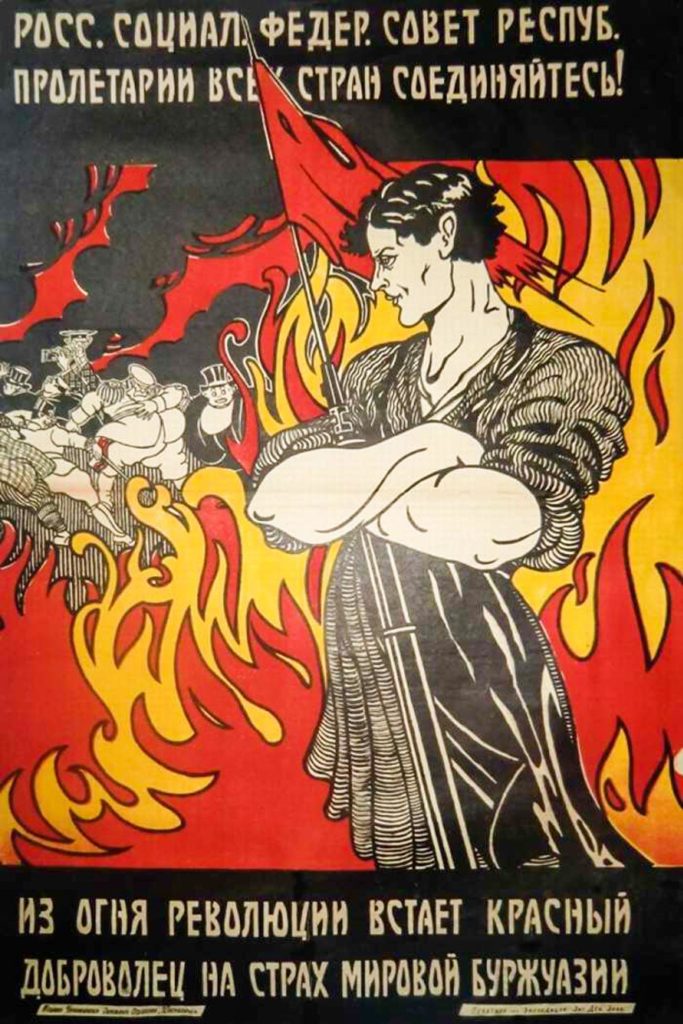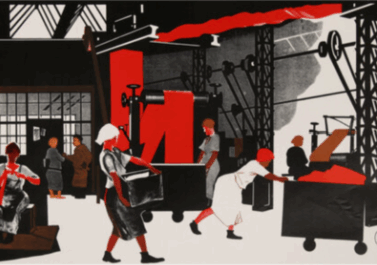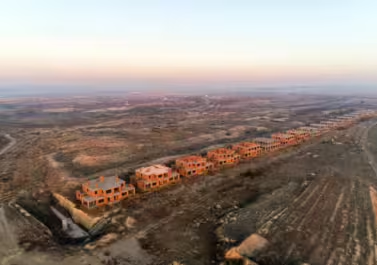
A group of Angry Workers and friends met as a reading group to discuss this article by Andreas Malm, first published in 2017 in Socialist Register – it’s about a 20-30 minute read. Malm ‘considers lessons from past revolutions and proposes an action program for today.’ Since the discussion, six comrades have put together short written responses to the article and to our discussion. Some comment are included (in italics) in the report, and in full at the end. If you want to join the reading group, get in touch – the upcoming texts and dates are here.
Malm starts by saying the association between climate change and revolution is obvious, and works through four ways of formulating it: Revolution as symptom, Counter-revolution and chaos as symptoms, Revolution for treating the symptoms, and finally Revolution against the causes. His diagnosis is: we need action from below and above.
From below, he calls for a direct action climate movement ‘a thousand times bigger’ than the one that gained attention in the year of the article, which saw the Break Free wave of international protests and occupations, the shelving of the Keystone XL oil pipeline in North America and Shell’s withdrawal from arctic oil prospecting. Malm’s 2021 book How to Blow Up a Pipeline: Learning to Fight in a World on Fire would push this further, criticising non-violence as a strategy while advocating sabotage and property damage – putting him outside the boundaries of polite discourse around climate change.
From above, he sets out a manifesto of ten fixes to ‘slash emissions to zero’, which would imply a political revolution. He says these would only be achievable through state action, and he uncritically recommends we act on Lenin’s dictum that “The key question of every revolution is undoubtedly the question of state power”.
Mostly we agreed Malm puts the case for treating the climate emergency as a driver for revolutionary action clearly and powerfully, even if his remedy finally swerves round any actual revolutionary class dialectic:
I thought the text was good because, even though we might disagree with the ‘strategy’ or conclusions, he does attempt to stitch together an argument as to why he came to them.
He ends up with revolution as a pure power struggle: because of the regional separation between polluters and victims of climate change and because of the time urgency there is no scope for mass emancipation – the state is the main subject to enforce changes, it is about the capturing of state power.
Revolution As Symptom
“We can thus propose a first hypothesis for a Marxist theory of climate-induced social confrontation… if the direct producers experience a climatic shock that reduces their capacity to reproduce themselves, and if the pump continues to operate or even accelerates, sending ever more resources towards the top, chances are that the former will rise up.”
In other words: what of a revolution sparked by the fact that it’s getting too damn hot? Malm tests the proposition by looking at the climate and food supply context for the Syrian uprising against Bashar al Assad andthe Russian famine of 1917, and other statistical evidence around strikes and street disturbances in hot weather.
For me, the article had a couple of particular strengths. The first was its clear and detailed exposition of the global climate crisis and the way production is organised impacts it. The second was its highlighting of the historic tendency for the effects of food shortages (also expressed as price rises via the market mechanism) to impact on the producing classes and often to lead to unrest, rebellion or insurrection. (Reader 3)
Counter-Revolution and Chaos as Symptoms
“Now if very many more disasters are imminent, and if they will trigger revolutions, will they also trigger counter-revolutions in the shape of rough beasts and bloated bureaucracies (claiming to be) indispensable for containing the hardships?… If ecological fascism could be an explicit ideological trend for a very warm future, another possibility is nihilistic, opportunistic, even racist violence.”
Highlights for me where: the acknowledgement that the establishment and far right have an idea how they will deal with the coming crisis, and that the left don’t seem to have anything so well formed … and the opportunity to talk about imagining a positive, socialist future.
Revolution for Treating the Symptoms
A short and bit peculiar section:
“Here, then, can be discerned the contours of a third hypothetical configuration: revolution to treat the symptoms of global warming… Surveys have found that the day-to-day processes of capital accumulation — enclosures, commodification, planning for real estate, centralization of resources — heavily distort most adaptation projects around the world, leaving precisely the most vulnerable people without cushions. But ‘in revolutionary times the limits of what is possible expand a thousandfold.”
At the end of the session, we talked a fair bit about ‘Green Capitalism’: how the current system produces solutions to Climate Breakdown, but doesn’t change the structure of society. Effects noted were that top-down imposition of solutions get reactionary results, with similar reactions to ‘Climate Change’ as those seen to Covid19.
“We cannot just wish away the problems that he poses. We cannot just avoid the question of how climate change (and capitalist development in general) impacts a car worker in Germany differently from an agricultural labourer in Bangladesh or sub-Saharan Africa. We cannot just repeat that ‘capitalism will not over-come climate change and working class revolution is the only solution’.
Revolution Against the Causes
This is Malm’s finale, with the big reveal: “Emissions can be slashed to zero. Everybody says this. Everybody admits this. Everybody has decided it is so. Yet nothing is being done – and this is the rationale for the most exigent type of revolution, the one that, in full consciousness of the roots of the problem, wages a full-scale onslaught on fossil capital… Can the climate movement grow by several orders of magnitude, gather progressive forces around it and develop some viable strategy for projecting its aims through the state — all within a relevant time frame in this rapidly warming world?”
This is aimed at updating the Communist Manifesto but without any reference to the struggle between classes or ‘the real movement of our class’. Secondly, there are the examples of direct action, notably that at the Ende Gelande. There is little in the article which suggests how class action can overcome the isolation and recuperability of such activity. However, the secret is revealed in the final paragraph…
Comrades’ notes in full
Regarding the text, I found the section of the actions of the US government particularly interesting showing their preparations for climate change and its impact socially. I tend to agree that hot weather does have an impact but at times when their are already tensions and i do think that climate change will impact on conditions of the working class across the world. I also found Malms list of 10 actions to take of interest but i presume he meant them as campaign within capitalism whereas i would see them as tasks that can only be undertaken under communism. This is important in that we tend to think of a working class society focusing on getting rid on wage labour, money and classes; thi is not wrong but there will be substantial tasks to correct all the environment catastrophes that capitalism is causing and these tasks will be important too. He ponts out the signficance and urgency of environmental issues which i do agree with and would also stress as i did in the discussion, the fact that many of these issues are now too late to address, the situation will continue to get worse.
The discussion was good in raising the issue of his view of a ‘revolution’. I did not know he was a Trotskyist beforehand but this makes it clear all he is talking about is state capitalism run by the leftists. I did note that he only talks of change in the western bloc and doesn’t mention environmental issues in Russia, China, Cuba or the need for revolution there
Lastly I left the meeting more than ever convinced that solutions to the environment problems can only come at a global level and based on a major change in attitudes/ideology i.e. a working class takeover of society. I can take individual actions about things I am concerned about but overall this changes little and in capitalism individual companies and states may well desire to change individual things but others won’t and overall within capitalism little will change
____________________________________________
I shared other peoples’ sense that he makes a strong case for engaging with different issues but his own proposals are lacking (as a side note – in retrospect I feel our discussion might have been more satisfying if we’d identified those issues in turn and then attempted to develop our own ideas). I think he’s right, for example, to raise the problem of the soviets’ weakness in the face of the famine in Russia, but wrong to conclude that terroristic centralisation was therefore unavoidable. In all of the early 20th century revolutions socialist militants were unprepared to direct social reproduction through the councils and their ad hoc attempts were chaotic and ineffective enough that they reinforced tendencies towards centralisation and the preservation of the state. Malm commits a kind of naturalistic fallacy and derives from that history an affirmation of authoritarian state power, but seemingly without any analysis of the material reproduction of the state or any of the limitations that entails. Instead of renouncing communism, the challenge is to prepare as far as possible a means of linking the implementation of a communist program with new forms of collective freedom and democracy. His call for ‘imaginary projection’ in this respect at least is welcome. We should pay close attention to scientific research on climate change mitigation (e.g. https://cat.org.uk/info-resources/zero-carbon-britain/research-reports/zero-carbon-britain-rising-to-the-climate-emergency/) and integrate this into the development of our program.
_____________________________________________
For me, the article had a couple of particular strengths. The first was its clear and detailed exposition of the global climate crisis and the way production is organised impacts it. The second was its highlighting of the historic tendency for the effects of food shortages (also expressed as price rises via the market mechanism) to impact on the producing classes and often to lead to unrest, rebellion or insurrection. That caused me to reflect on recent television coverage of workers in Afghanistan whose families can only survive by buying the stale bread discarded from capitalist enterprises, a recent article about Kenya where in one national territory there is horrific and ongoing famine in the North while in the South long standing communities based on farming and fishing are being destroyed by the rising levels of the Great Lakes. It also caused me to think about the plight of huge swathes of the working class in the UK who are being forced, at best, to rely on diminishing charitable donations to feed themselves and families. In a recent discussion the participants remembered that during the late 70s and 80s in Britain there was a slogan raised, “No Return to the 30’s” a time of great hardship. Currently, the crisis has created a lack of affordable access to necessities which in its breadth and depth is unparalleled since that time.
In my view, although others disagreed, I felt that although the title was about a “Revolutionary Strategy” (RS), the incoherence and inconsistencies within the article amounted to an absence of a RS. In fairness, I’m not sure that it is possible to “suck a RS out of the air” given the current level of independent self-organisation or consciousness in the class.
The article pivots around three unmeshed approaches to RS. A new proposed 10 point manifesto/action plan. This is aimed at updating the “Communist Manifesto” but without any reference to the struggle between classes or “the real movement of our class”. Secondly, there are the examples of direct action, notably that at the Ende Gelande.There is little in the article which suggests how class action can overcome the isolation and “recuperability” of such activity. However, the secret is revealed in the final paragraph. For Malm, the solution is for the climate movement to grow significantly (how?) and “gather progressive forces around it and [Malm’s emphasis] develop some viable strategy for projecting its aim through the state [my emphasis – K]. Call that a hypothetical strategy if we must, but revolutionary it ain’t.
___________________________________________
I thought the positive aspect of the text was the sense of urgency and the breadth of aspects to take into consideration: examples from Syria in the 21st century, the Russian Revolution in 1917, the question of uneven development. My main problem with the text is that Malm poses the issue of revolution only as an issue to ‘prevent catastrophe’. He does not refer to the old dialectic of crisis and revolution: in the capitalist crisis it becomes apparent that under current social conditions an increase in social productivity leads to more unemployment, surplus production, an increase in relative poverty. Communism, or an emancipated society, was not a mere utopia, but visible as a real potential within the contradictions of capitalism. It is surprising that Malm refers to Marx and Lenin a lot, but he doesn’t try to elaborate how the additional factor of climate change impacts on this old ‘revolutionary dialectic’. Perhaps he thinks that ‘communism’ or revolution cannot be linked anymore to the contradiction between ‘productive forces’ (the ability to produce with less (manual) human input) and ‘relations of production’ (profit interest, divided cooperation, competition etc.), because the emancipatory aspect of an increase in productivity was only achievable through natural destruction. That would be an easy way out, as we would not have to take up the heavy task to analyse to which extent ‘global cooperation’, ‘the application of knowledge and technical means’ could be achieved in a less environmentally damaging way. Malm writes in his text that the old subject of revolution – the worker in Petrograd, who existed in a direct and dialectical relation to capital (as an exploited, as the force that ‘produced capital’, as the potential force to materially transform and surpass capital) – has been replaced by ‘subjects who are most affected by climate change’, e.g. the population of Burkina Faso, who are specially very remote and external to the source of their problem, e.g. the western polluting nations, the global north.
He ends up with revolution as a pure power struggle: because of the regional separation between polluters and victims of climate change and because of the time urgency there is no scope for mass emancipation – the state is the main subject to enforce changes, it is about the capturing of state power. The historical example that he refers to is the famine during the Civil War during the Russian Revolution. He claims that experiments with mass democracy aggravated the problem of the famine and that in the end the state had to introduce dictatorial measures. Historically this is questionable. A centralised relationship between urban and rural Soviets could have equally solved the issue, the problem was that for whatever reasons (war, lack of trust etc.) Lenin postponed collectivisation on the land and stuck to the populist slogan ‘land to the tiller’, which benefitted the middle peasantry. In this sense it was not the ‘experiment of mass democracy’ that created the problem, but the fact that this experiment didn’t involve large parts of the rural world. Centralisation does not equate ‘state power’.
During our discussion of the text I realised that we cannot just wish away the problems that he poses. We cannot just avoid the question of how climate change (and capitalist development in general) impacts a car worker in Germany differently from an agricultural labourer in Bangladesh or sub-Saharan Africa. We cannot just repeat that ‘capitalism will not over-come climate change and working class revolution is the only solution’. We have to go into the actual use value side / exchange value contradiction of ‘green capitalism’: currently it’s capitalist enterprises and not the ‘working class’ or ‘the communist left’ that come up with inventions to ‘produce in a greener fashion’. We have to do our homework and analyse how these inventions are shaped not only by the ‘necessity to create profits’, but also by the limited scope of capitalist cooperation, the separated nature of science etc. We cannot avoid this challenge of dealing with actual material progresses, their potentials and limits (Gen-tech, new energy sources, new forms of agriculture etc.) by just saying that ‘under capitalism they won’t make a difference’ or by rejecting them in general. – M.
I thought the text was good because, even though we might disagree with the ‘strategy’ or conclusions, he does attempt to stitch together an argument as to why he came them. The sense of urgency and fact that the effects of climate change are already upon us, makes it seem sensible to build a strategy on external drivers having more of an influence than internal dynamics of the capital/labour relationship. In the context of a weak and dispersed global working class, the progression to a centralised vanguard capturing state power and enforcing planet-saving policies holds more allure.
However, he doesn’t question the role of the nation state that much in the constellation of global capital, nor the opportunities for emancipation and a better life as such in the process of revolution. I think we should use his arguments in our pamphlet/film discussion to argue against the slippery slope to ecofascism that the sense of horror and helplessness of the climate change debate engenders. – K.
________________________________________
It was a really interesting discussion. It was my first time in the group, and everyone was really welcoming. There seemed to be a consensus that Malm’s article got us thinking about strategy, but that he didn’t really discuss it. Malm just proposed a Bolshevik style takeover of the state, coupled with a list of 10 things to impose post-revolution. No one was keen on Malm’s proposed “strategy”.
There also seemed to be agreement that the article highlighted the urgency of the problem (a warming world). We touched briefly on [was it unequal development?], extraction of surplus value and Extinction Rebellion’s strategy of demanding action from the state. At the end of the session, we talked a fair bit about “Green Capitalism”: how the current system produces solutions to Climate Breakdown, but doesn’t change the structure of society. Effects noted were that top-down imposition of solutions get reactionary results, with similar reactions to “Climate Change” as those seen to Covid19.
_________________________________________
Highlights for me were:
The acknowledgement that the establishment and far right have an idea how they will deal with the coming crisis, and that the left don’t seem to have anything so well formed (maybe because we’re more disparate, rather than being a large/homogenous block?)
The opportunity to talk about imagining a positive, socialist future; and,
The idea of talking more about how to react to/address the Climate and Ecological Crises.
It was a really interesting discussion. It was my first time in the group, and everyone was really welcoming. There seemed to be a consensus that Malm’s article got us thinking about strategy, but that he didn’t really discuss it. Malm just proposed a Bolshevik style takeover of the state, coupled with a list of 10 things to impose post-revolution. No one was keen on Malm’s proposed “strategy”.
There also seemed to be agreement that the article highlighted the urgency of the problem (a warming world). We touched briefly on [was it unequal development?], extraction of surplus value and Extinction Rebellion’s strategy of demanding action from the state. At the end of the session, we talked a fair bit about “Green Capitalism”: how the current system produces solutions to Climate Breakdown, but doesn’t change the structure of society. Effects noted were that top-down imposition of solutions get reactionary results, with similar reactions to “Climate Change” as those seen to Covid19.



